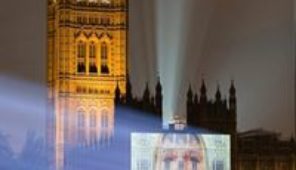Professionalism: Resisting the career pathway of least resistance
Professionalism is the art of staying true to justice. The art is this: to be ready to be wrong, ready to change, ready to disagree
Despite being central to the medical profession, the concept of professionalism remains insufficiently defined and is often viewed by academic literature as a measurable competency that can be taught.(1) A colloquial understanding of professionalism is the qualities, skills, competence and behaviours expected of us. Surely, a better rationale than ‘expectation’ must exist?
Surely, the regulatory bodies, superiors, and colleagues from whom this expectation arises could be wrong? To merely do what is expected seems a profoundly lackadaisical approach to the complex ethics of the medical profession. Without a willingness to disagree with the status quo we would not have female doctors, we would have continued to reject germ theory, we would not have progressed.
Indeed, if professionalism is to be defined solely as ‘behaving as expected’, I want nothing to do with it.
If it is not in the expectations of our forebears, from where do the rules of conduct arise?
It is a difficult thing, socially, psychologically, to alter from a group’s way of thinking, and hold true to what we deem to be correct. Professionalism, I am convinced, can not be taught and must come from within. In the first years of medical school our ethical education highlights the four pillars: Autonomy, Beneficence, Non-maleficence, and Justice. Yet, we are quickly pulled and swayed by what will be the ‘pass’ answer on the SJT, what answer will please a superior, a patient, or even the law.
Medical school produces articulate, appropriate, agreeable F1s like a finishing school for the NHS. While our schooling is indispensable, it fulfills only half of the equation. Our educations must prepare us not for a static professionalism, but a changing one. The drivers of change in the medical field are internal, they are each individual doctor and medical student.
Dr. Chris Day, a junior doctor working at Queen Elizabeth Hospital, recently reported concerns to managers when left solely responsible for the ICU, A&E, as well as other wards. A comment on the article outlining Dr. Day’s employment appeal tribunal stressed that when highlighting issues, “‘fair weather bosses’, expect everyone “beneath them” to get on with it and not make their life ‘difficult’ by “pointing out problems” and that many senior staff “are simply looking for a career of least resistance”.
Professionalism is a lifelong commitment to resisting the temptation to pursue a career of least resistance, in favour of a career of justice.
Professionalism is the art of staying true to justice.
The art is this: to be ready to be wrong, ready to change, ready to disagree, ready to involve the courts, ready to campaign for change before a paradigm shift– the bravery to start a paradigm shift.
And where does this kind of strength come from? I can not phrase it better than Khalil Gibran, “Safeguarding the rights of others is the most noble and beautiful end of a human being.” and it is an inner drive of incredible force and sureness.

Bella was born in Sweden already bitten by the travel-bug, and grew up across the Middle East, Europe, and the USA. She holds a BA Psychology, MSc Neuroscience, and her MBChB is ‘loading’ at the University of Edinburgh. Passionate about education and mental health, she works part time as a private tutor for Enjoy Education, focusing on students with special educational needs. She hopes to pursue a career in emergency/wilderness medicine, write books, and teach. When not revising or teaching, she’ll be found walking her rescue Staffie, practicing aerial trapeze, or scuba diving.
Isabella El Makdessi
Latest posts by Isabella El Makdessi (see all)
- Healthcare hackathon – product forge - 28th January 2017
- Professionalism: Resisting the career pathway of least resistance - 1st August 2016


